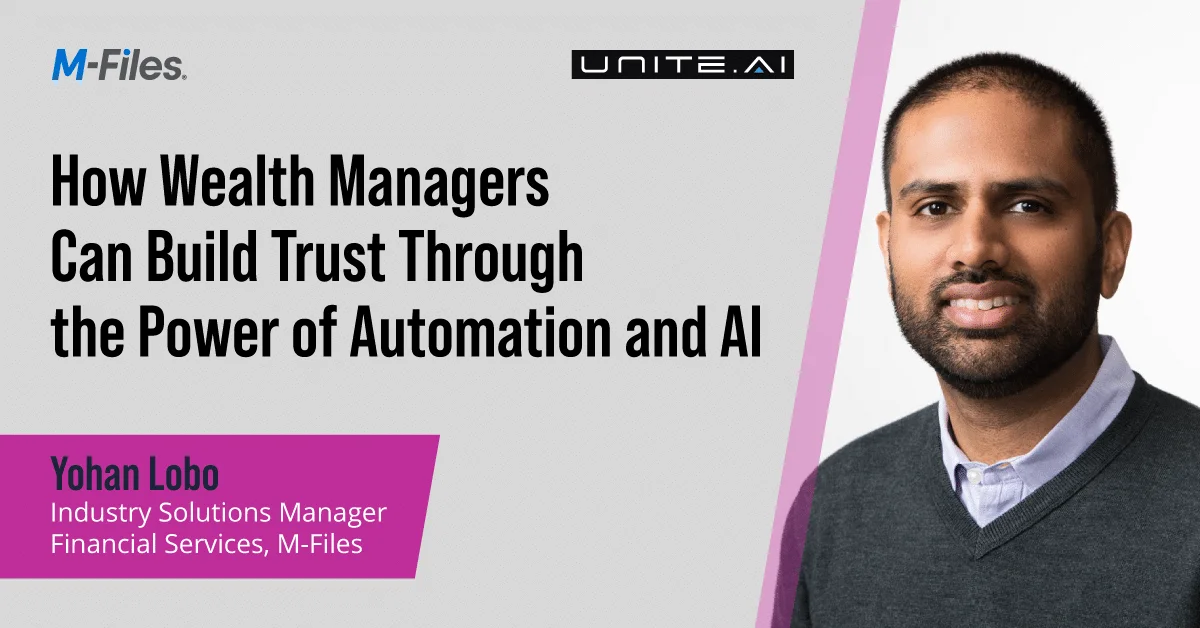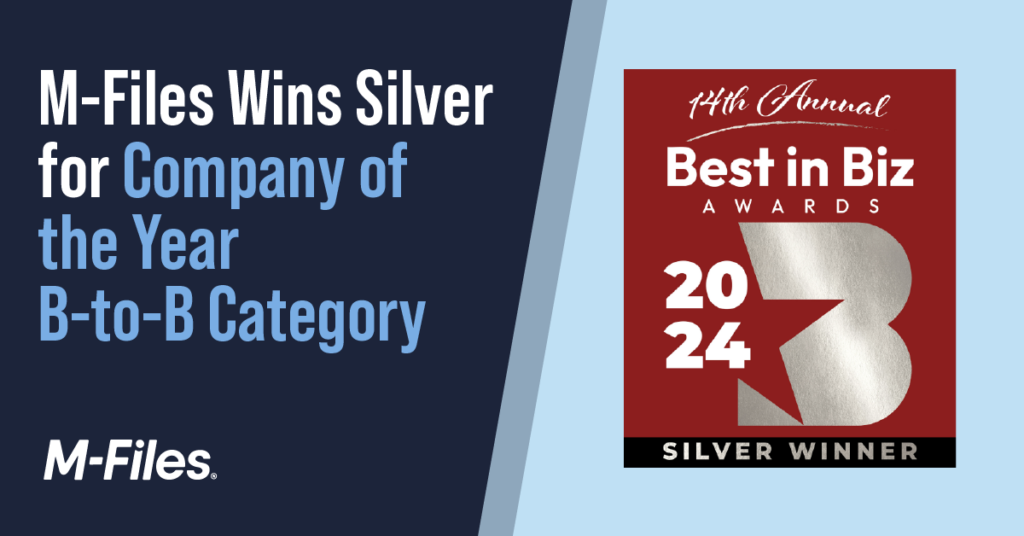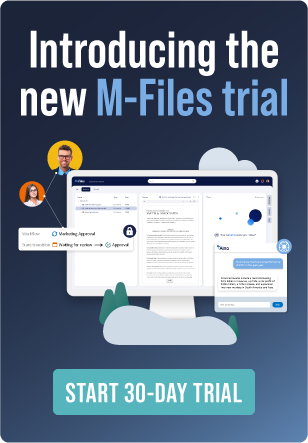How Wealth Managers Can Build Trust Through the Power of Automation and AI

Yohan Lobo, Industry Solutions Manager, Financial Services, M-Files, was recently featured on unite.ai to discuss the power of trusting in automation and artificial intelligence (AI) in wealth management organizations.
Building trust between wealth managers and their clients has traditionally been credited to effective communication and understanding between the two partners. Over time, wealth managers’ have become increasingly spread thin because of larger portfolios of more demanding clients. The knock-on effect is that clients can feel out of the loop due to extended response times from their wealth managers.
The latest AI solutions now enable wealth managers to eradicate human error and secure integral daily processes, including knowledge work automation, which improve client experience and increases trust.
More time for client relations
Wealth managers don’t have enough time during the week to foster the relationships they have with clients. Over time, wealth managers have seen their portfolios expand, increased compliance responsibility and other non-revenue generating tasks thrusted upon them. In-turn, schedules have become congested for wealth managers.
Manual, time-consuming procedures have been required when handling workflow processes for wealth managers. Taking up time and energy of wealth managers to ensure workflow is properly handled and stored, has in turn, hindered their capability to improve client relations and foster new ones.
Through the power of automation, wealth managers can store and access the most up-to-date version of customer data in real time without the worry of if it’s the correct version – as it always will be.
Avoiding content chaos
For wealth managers, the handling of sensitive client data is an everyday responsibility. One false move in team members saving or sharing an incorrect file can now lead to huge data breaches and legal implications.
Knowledge work automation, supported by metadata and AI technology, ensure wealth managers are accessing the correct data every time. Ensuring only one version – the correct one – is stored, wealth managers avoid the construction of data siloes across their systems. The creation of data siloes slows down workflow and business processes, as accurate data is more difficult to come by and also increases the chances of sharing incorrect data both internally and externally.
The wealth management industry cannot afford to be viewed as taking a light-touch approach to data handling. High net-worth individuals will sooner find new opportunities to invest or store their capital if they feel wealth managers are simply not up to the task of handling their assets and data.
The AI trust-factor
With much of a wealth manager’s success relying on trust from the client, how can AI better improve relationships for both parties? With AI, building trust in wealth management is born out of these automated workflow management processes. Prior to these tools, wealth managers would be typically time poor, which would increase the likelihood of workflow being mishandled as schedules become increasingly strained.
The power of automation providing seamless and secure processes ensures client data is safely handled in a timely manner. From a client perspective, trust is only going to increase once wealth managers have harnessed these tools in a bid to eradicate human error.
Money talks
Implementing AI across workflow processes has little downside when considering the risks often involved in the processes become mitigated and automation rapidly improves delivery.
For wealth managers and their clients, a more present and interactive relationship is born out of the AI overhaul as their schedules become increasingly flexible as a direct result of automation.
Wealth managers must be up to date on all the emerging financial tools and investment instruments now available on the market as well. It is not just manual processes which are taking up their time – wealth managers need all the help they can get from automation as their job roles continue to evolve.
Removing the threat of human error and easing time pressures offers greater levels of trust during the customer journey. In the long term, the increased adoption of AI will revolutionise wealth management services across these crucial processes. This improved security established across wealth management products and services will result in prospects looking to the sector as a reliable channel for investment management.
Visit "How Wealth Managers Can Build Trust Through the Power of Automation and AI" and follow us on social media to learn more from M-Files.




